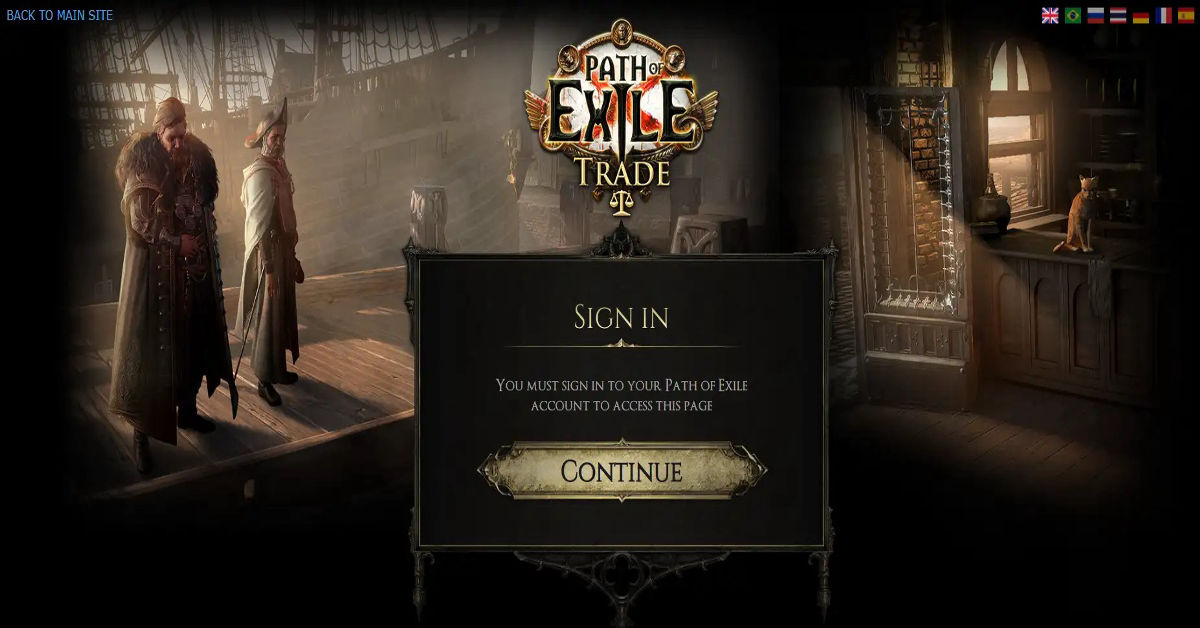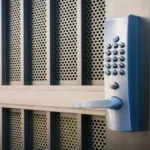Trading in Path of Exile is unlike the marketplace systems seen in many online RPGs. Instead of a centralized auction house players rely on direct interaction through the Poe trade system, which creates a unique player-driven economy. This system demands communication, patience, and knowledge, but it also rewards skillful players with better builds, wealth accumulation, and even status within the trading community. For beginners, the first impression of Poe trade can be overwhelming, but understanding the steps makes the process surprisingly straightforward.
The importance of Poe trade goes beyond simple buying and selling. It represents the heartbeat of the in-game economy, connecting players across the globe. Every trade from a single chaos orb to a high-value mirror-tier item contributes to shaping supply and demand. This article dives deep into all aspects of trading from basic mechanics to advanced strategies ensuring that you gain both knowledge and confidence in navigating the market.
What is Path of Exile?
Path of Exile is an action role-playing game (ARPG) developed by Grinding Gear Games. Often compared to classics like Diablo, it has established itself as one of the most complex and rewarding RPGs available today. The game is free-to-play and thrives on frequent seasonal updates called leagues, which introduce new mechanics, enemies, and economic changes. Players choose from various classes and build highly customizable characters through a vast passive skill tree, gem system, and endless itemization options.
Unlike traditional RPGs, Path of Exile focuses heavily on player choice and depth. Every character build can feel entirely unique, driven by loot drops, crafted items, and trade interactions. Because of its complexity, Path of Exile has one of the most player-driven economies in gaming. Items are not bound to accounts, meaning nearly everything can be traded. This design makes trading not just an optional feature but an essential part of progression, connecting players worldwide in a living marketplace.
Why Trading is Essential in Path of Exile
Path of Exile is built around an incredibly complex loot system. Items drop in abundance, but the chances of finding the perfect combination of stats for your build are extremely low. That’s where Poe trade becomes essential. Trading enables you to skip the grind of farming for specific items and instead purchase exactly what you need from other players. This efficiency can mean the difference between struggling through mid-tier maps and thriving in endgame content.
Furthermore, trading allows you to profit from the items you don’t need. Instead of hoarding gear in your stash, you can sell it for currency that improves your character. Even low-level items can fetch value in the early stages of a league when demand is high. Over time, these transactions accumulate, providing a steady source of resources that sustain your progression. Without trading, many builds would remain incomplete, and players would face unnecessary difficulty spikes.
Understanding the Currency System in Poe Trade
The Path of Exile economy does not use gold or credits like most games. Instead, the Poe trade system revolves around currency items, each of which has a functional use in crafting, rerolling, or modifying gear. Chaos orbs serve as the mid-tier standard, while divine orbs dominate high-value trades. Other currencies, such as exalted orbs, fusings, and alchemy orbs, play supporting roles but can still be highly valuable in bulk. Understanding these items is crucial to avoiding poor trades.
Currency values are dynamic and fluctuate throughout each league. For instance, divine orbs may be worth 150 chaos orbs at one stage but 200 later, depending on market trends. This shifting economy means players must always stay informed to trade fairly. Fractional pricing also plays a role, where an item listed at 2.3 divine orbs requires both divine and chaos payments. Correctly calculating these conversions avoids disputes and ensures smoother interactions.
Key Currencies in Poe Trade and Their Uses
| Currency | Role in Trading | Functional Purpose | Example Value Trend |
| Chaos Orb | Standard mid-tier currency | Reroll modifiers on rare items | 1 Chaos ≈ baseline unit |
| Divine Orb | Premium high-value currency | Re-roll all modifiers on an item | 1 Divine ≈ 180–200 Chaos |
| Exalted Orb | Specialist high-value currency | Adds modifiers to rare items | 1 Exalted ≈ 30–40 Chaos |
| Orb of Fusing | Bulk currency in crafting trades | Links sockets together | 10 Fusings ≈ 1–2 Chaos |
| Orb of Alchemy | Low-value entry-level trading currency | Upgrades white items into rare items | 4–5 Alchs ≈ 1 Chaos |
How to Buy Items Safely and Efficiently
The process of buying items in Poe trade follows a straightforward structure but requires attention to detail. To begin, you must search for the desired item on the official trade site. Each listing generates a pre-written whisper message that can be sent directly to the seller in-game. After sending this message, the seller typically responds with a party invite. Upon accepting, you should head to their hideout, where the trade will take place.
During the transaction, it is important to have the correct currency prepared in your inventory. Sellers expect precise amounts without needing to convert between currencies themselves. Once the seller opens the trade window, carefully inspect the item to confirm it matches the listing. Only after verifying should you confirm the exchange. As a courtesy, thank the seller before leaving the party. Following this method ensures safe and respectful interactions while minimizing the risk of scams.
Step-by-Step Guide to Selling Items
Selling in Poe trade is just as important as buying, but it requires a bit more setup. The easiest way to sell is by using a premium stash tab. By setting your tab to public and assigning prices to items, they automatically appear on the trade website for others to view. When a buyer messages you, invite them into your party and wait for them to accept. It is best practice to meet them in your hideout, ensuring quick and safe trades.
Once the buyer arrives, transfer the item from your stash to your inventory and initiate the trade. Always double-check the currency they place in the window. Using the ALT key displays an automatic count of stacked currency, helping avoid mistakes. If the trade checks out, confirm, thank the buyer, and remove them from your party. Selling items effectively not only frees stash space but also builds up a currency reserve that fuels your future purchases.
Essential Tools and Add-ons for Better Trading
While it is possible to trade without third-party assistance, using tools makes the process significantly more efficient. Price-check overlays allow players to quickly assess the value of loot drops without leaving the game. Bulk selling tools help list large stacks of currency, maps, or crafting materials with minimal hassle. These tools often sync with the official trade website, making updates seamless and accurate.
Advanced traders benefit even more from specialized overlays that provide market insights. Some tools display live price fluctuations, helping you adjust listings in real time. Others automate messaging templates, reducing typing errors when responding to buyers. While these tools are optional, they save time and improve accuracy. The best traders leverage them to stay competitive, ensuring their items are always priced appropriately. For anyone serious about Poe trade, integrating these add-ons into your workflow is highly recommended.
Avoiding Common Scams and Mistakes
Because Poe trade is entirely player-driven, scams are a reality. One of the most common involves item swapping. A seller may list a high-level gem but replace it with a lower-level version in the trade window, hoping the buyer doesn’t notice. Always verify the item carefully before confirming. Another scam tactic is altering price values in fractional trades, expecting the other player to overlook the math.
Mistakes also happen unintentionally, especially when dealing with large stacks of currency. You cannot split stacks within the trade window, so preparing exact amounts beforehand is crucial. Miscommunication about negotiable prices can also cause confusion. The key to avoiding these pitfalls is patience and vigilance. Double-check every transaction and never rush through trades. By maintaining focus, you protect yourself from scams while ensuring that both sides leave satisfied with the deal.
Common Poe Trade Scams and How to Avoid Them
| Scam Type | Description | Prevention Strategy |
| Item Swapping | Seller replaces listed item with weaker copy | Always check item level and modifiers |
| Fractional Price Trick | Misleading chaos-divine conversion | Pre-calculate price before starting trade |
| Currency Stack Tricks | Splitting currency incorrectly | Prepare correct stacks in inventory |
| AFK/Spam Trades | Fake buyers wasting time | Move to next buyer quickly |
| Negotiable Price Abuse | Aggressive low-ball offers | Only negotiate on expensive items |
Bulk Trading and Pricing Strategies
Bulk trading is one of the most efficient methods of managing your stash and maximizing profit. Instead of selling individual chaos orbs, fusings, or maps, you can list entire stacks at competitive rates. Buyers often prefer bulk purchases to save time, which means your listings are likely to sell faster. This method also reduces the number of individual trades you need to conduct, freeing you to spend more time playing the game itself.
Pricing strategies are equally important. Undercutting slightly below the market average ensures quick sales but may reduce your profit margins. Conversely, setting negotiable prices allows room for bargaining, which works best for rare or high-value items. Timing also plays a significant role—prices fluctuate based on league progression, with certain currencies spiking in value early on. By studying these patterns, you can optimize when to sell, ensuring maximum returns for your efforts.
Negotiation Tactics in Poe Trade
Negotiation is not always necessary, but for valuable items, it can make a significant difference. A respectful and polite approach often opens the door for compromise. For example, when an item is listed as negotiable, you can offer slightly below the asking price and see if the seller is willing to meet halfway.
The key is to remain reasonable. Attempting to drastically undercut a seller may offend them and shut down the conversation. On the other hand, offering a fair deal builds trust and sometimes leads to repeat transactions. High-value items such as unique six-linked gear or rare jewels are the most common candidates for negotiation. By practicing negotiation, you not only save currency but also enhance your communication skills, making you a more effective trader overall.
Buyer vs Seller Etiquette in Poe Trade
| Role | Best Practices | Common Mistakes to Avoid |
| Buyer | Have currency ready, check item carefully | Asking for delivery to your hideout |
| Buyer | Join seller’s hideout promptly | Ignoring seller’s availability status |
| Seller | Respond quickly when possible | Mispricing items due to lack of research |
| Seller | Keep trades professional and polite | Failing to verify currency stacks |
Role of Hideouts and Party Invites in Trading
Hideouts play a central role in facilitating Poe trade. They serve as private spaces where transactions can occur without the chaos of public towns. Once invited to a seller’s party, buyers typically join their hideout, where the trade window can be safely opened. This system creates a streamlined environment that minimizes interruptions and confusion during the process.
Party invites are the gateway to trading, but they can sometimes create confusion if multiple invites overlap. Always double-check the character name to ensure you are trading with the right person. For efficiency, it is courteous to remain in the hideout until the transaction is complete. Constantly leaving and re-entering areas wastes time and can frustrate sellers. Understanding the etiquette around hideouts and party invites ensures smoother interactions and keeps the marketplace running efficiently for everyone involved.
Advanced Tips for Experienced Traders
Once you are comfortable with basic buying and selling, you can begin exploring advanced trading strategies. Flipping is one such technique, where you purchase undervalued items and resell them at market price for a profit. This requires sharp awareness of pricing trends and the ability to act quickly. While risky, it can be highly rewarding when executed correctly.
Specialization is another advanced tactic. By focusing on a niche market such as rare jewels, league-specific uniques, or six-linked gear, you can build expertise and reputation. This allows you to anticipate demand, price items accurately, and build relationships with repeat customers. Using advanced trade macros and overlays further enhances efficiency, giving you instant pricing data during mapping. Experienced traders often combine these techniques to maintain consistent profits throughout a league.
Common Issues and How to Solve Them
Trading is not always smooth, and players often encounter common problems. One frequent issue is connection failure when attempting to join another player’s hideout. This can usually be resolved by asking for a direct hideout invitation instead of relying on party join mechanics. Another problem is receiving spam trade requests after accidentally underpricing an item. Adjusting your listing quickly typically resolves this.
Buyers and sellers going AFK is another source of frustration. In such cases, patience is key, but if the delay is excessive, it is better to move on to the next trader. Miscommunication over fractional pricing also happens often, so pre-calculating values before initiating contact avoids confusion. Handling these issues calmly and professionally ensures that you maintain a positive reputation in the community, making future trades smoother.
Final Thoughts and Future of Poe Trade
Poe trade is a fundamental part of the Path of Exile experience, shaping the in-game economy and enhancing the progression of countless players. It allows for creativity, efficiency, and strategy far beyond farming alone. While it has its challenges, such as scams and fluctuating values, the rewards far outweigh the difficulties.
Looking ahead, the future of Poe trade will likely continue to evolve alongside new leagues and expansions. Developers may introduce quality-of-life improvements, but the heart of the system—player-to-player interaction—remains central to its charm. By mastering both the basics and advanced strategies, you position yourself to succeed in this ever-changing marketplace. Trading is not just about items it’s about building connections and thriving within a living economy.
FAQ: Poe Trade
1. What is Poe trade and why is it important?
Poe trade is the system by which players in Path of Exile buy and sell items directly with each other. It is vital for acquiring rare gear, progressing builds, and participating in the player-driven economy.
2. What currency should I use in Poe trade?
Chaos orbs are the standard mid-tier trading currency, while divine orbs are used for high-value transactions. Other currencies can be traded in bulk but are less common in single exchanges.
3. How do I avoid scams while trading?
Always double-check items in the trade window, calculate currency conversions before contacting sellers, and avoid rushing through trades. Attention to detail is your best protection.
4. Can I negotiate prices in Poe trade?
Yes, negotiation is common for expensive items. Polite bargaining can save you currency, but aggressive low-ball offers often result in declined trades.
5. What tools can help me trade more effectively?
Price-check overlays, bulk listing tools, and trade macros are essential for efficiency. They save time, ensure accurate pricing, and help you stay competitive in the market.







